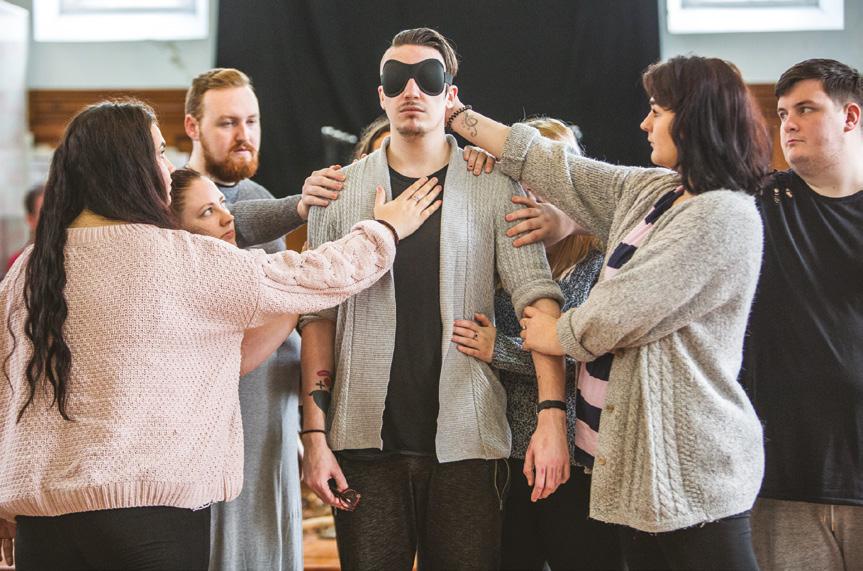Inspiration from ACE Interrupters in Great Britain
Introduction For many, it will come as no surprise that adverse childhood experiences or ACEs (Box 1) can have a lifelong impact on the behaviour, health and life course of individuals. Those working with children and families will be aware of how chronic childhood trauma from abuse, neglect, or living with circumstances such as domestic violence, can result in children careering into a problematic adolescence, and later an unhealthy, unproductive and “I thought maybe I am crazy, maybe sometimes criminal adulthood. Sadly, those with a I am so delusional about my ability legacy of ACEs may never reach their true potential. All as a parent because I had nothing to too often they go on to have children who also suffer compare it to” ACEs, meaning toxic childhood trauma is passed from Lily, page 13 generation to generation. However, it is also apparent that many individuals who suffer ACEs do manage to flourish, going on to live happy and healthy lives. Escaping the impact of a traumatic childhood is often aided by support, direction and hope from a trusted individual – sometimes acting alone, often as part of a broader service. This book collects together stories of such pioneering individuals. Known as ACE interrupters, these are people who have helped prevent ACEs, reduced their impact on children, or supported adolescents and adults whose health and life course prospects were otherwise diminished as a result of their childhood experiences. These are real stories of real people; the challenges they have faced and continue to face; their achievements and the goals they continue to strive for. Whilst sometimes shocking, saddening or “We’ve got to do a lot more to keep these even infuriating, it is hoped that these stories will also children part of society, it’s too easy to be heart-warming, reassuring and ultimately inspiring. write them off” In these stories, we see how passionate individuals can Eileen Shannon, head teacher, be responsible for considerable change to improve the Victoria Road PRU, London, page 16 lives of others.
Box 1: What are adverse childhood experiences or ACEs? ACEs is a collective term used to describe suffering physical, sexual or emotional abuse or neglect as a child, or growing up in a household affected by domestic violence, substance use, mental health issues or substantive problems with criminal justice.1 ACEs was a term first used by Dr Vincent Felitti in the US in the 1990s - he found that many of his patients who were failing to control their weight were suffering from unresolved childhood trauma, particularly sexual abuse. Such patients reported that eating provided a coping mechanism and that their weight gain helped them feel safe from abuse. Working with the US Centers for Disease Control and Prevention, Dr Felitti developed the first ACE Study to further examine these issues in a sample of 17,000 patients. They found strong relationships between the number of ACEs suffered in childhood and a wide range of healthharming behaviours as well as physical and mental health conditions experienced as an adult.2 The ACE questionnaire has since been widely used in research across many settings and countries, including in England3 and Wales,4 leading to the creation of a large evidence base on the harmful impacts that ACEs have across the life course.
3





